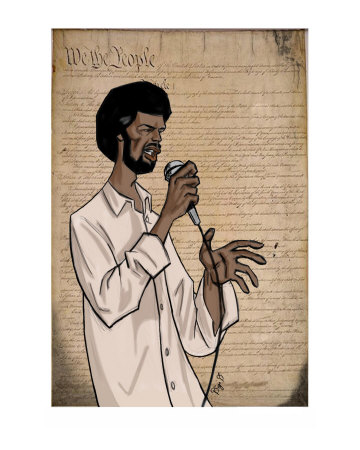Essence of Control, The Sequel, The cliché and the Epic Day:
Hello again to the reader, I am here writing again—in my apartment trying to construct a memory palace—I am coming short however on the construction, all I have is a memory shack, and a mind drunk off the literary tradition.
I have just put down Ong’s book—and I must say—I am more disillusioned then I was after putting it down yesterday. So to start back into my conversation I will revert back into my Orwellian argument of the power of words, and the power they have to constrict society into varying levels.
Where I left off yesterday was my contention that there is point’s of view in writing that reveal many walks of life, and contain the power to change, enrage and enlighten the reader. Have you ever heard someone announce this quote, “my education is getting in the way of my real education”, have you ever wondered what life would be without this rigorous structure that is based solely off myth. That’s right I said it—American life is the fulfillment of a Myth that is the culmination of various literary traditions that society has deemed over the years as necessary to the fulfillment of our notions of proper ethics. We thus have a class system that is based off the worship off greed and the ability to Interrupt Law—through arbitrary myths that we feel protect our virtues. I will not go off on a tangent about this because I realize this argument is blending into a political discussion. But I will make this last comment about my perspective about the power of written language in the context of this country. The one’s who have had power in any modern society have done so with the power of the word, and the ability to have people dedicate their lives to myth, Castro, Stalin, Hitler, Mussolini, Karl Rove—Big Brother is always watching, remember ignorance is strength.
On a lighter note I wanted to say that human suffering at the hand of greedy oligarchs is not the only cliché I am going to talk about. With the invention of the written language, cliché’s however minute resurface, and their roots are surprisingly oral. In Ong’s book Orality and Literacy he does an outstanding job drawing attention to the fact that we hold a “typographic and chirographic bias (17)” when discussing oral traditions. Many must assume that cultures that exist without a written tradition are ignorant. To the contrary, they have memory palaces that are full of libraries that don’t need to contain books—but sensations that we call myth--that help recall specific knowledge—weather one is aware or not. For Example:
Have you ever considered why accents and dialects exist? It’s almost as if a person with a heavy accent is conscious of something you just don’t understand. There is a certain chill to a New Englanders accent, a warm openness that floats off southerner’s lips. They are American myth tellers. Back to my point: these accents are a culmination of collective thoughts that represent a geographic area. There is something that is so imbedded in these examples minds it escapes their breath orally and distinctively. Back to Ong’s and Clichés—on pg 21 Ong draws attention milmann’s discovery regarding Homer. It was his economy of words that distinguished his oral verse from modern literary verse’s—it emphasized the importance of memory and the directness of Homer--where as the written word can mean multitude of things.
P.S: I need to stop here in my next blog I will further discuss cliché.

No comments:
Post a Comment